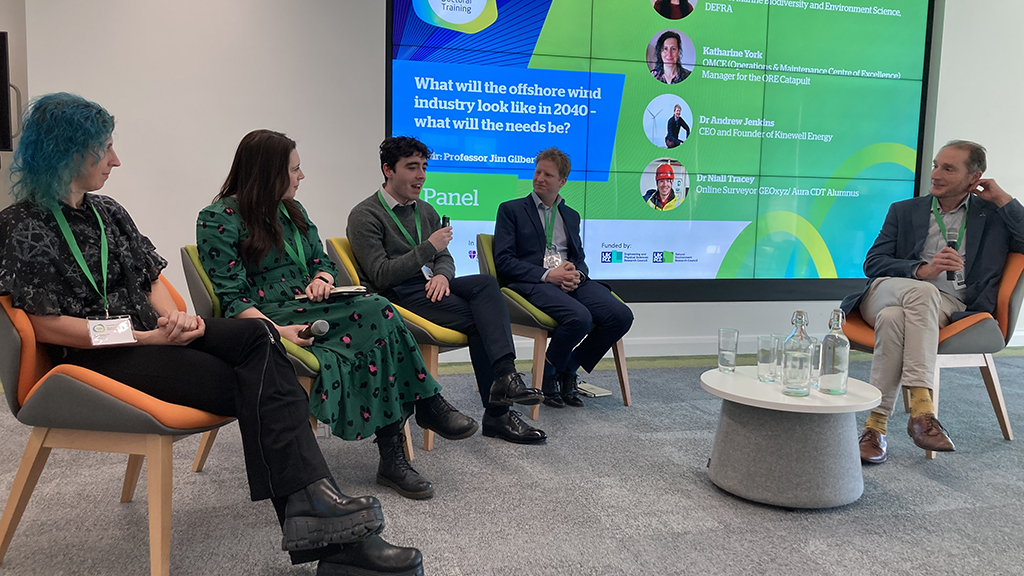



Niall Tracey
Dr Niall Tracey recently graduated from the Aura CDT following completion of his PhD research at Durham University. He is now employed as an offshore surveyor by GeoXYZ.
Niall returned to speak at the Annual Aura CDT Conference in January 2024, taking part in a panel discussion on the future of offshore wind alongside other industry speakers.
Background: I graduated from Bangor University in 2019, with a BSc in Geological Oceanography and an MSc in Applied Marine Geoscience. During my BSc I completed an internship in Bangor University School of Ocean Sciences Hydrodynamics laboratory looking as Sediment gravity flows. From this internship as part of my BSc dissertation I undertook research to discover if lock-exchange experiments of sediment gravity flows were prone to user bias. Following on for my MSc thesis I conducted fieldwork identifying whether flute and tool marks are related to specific sediment gravity flows.
Research Interests: My main fundamental and applied research interests focus on the dynamics of sediment transport within the ocean, ranging from scouring around offshore wind turbines to large scale sediment gravity flows in the deep ocean. I also have a deep interest around the use of geophysics for visualising seabed morphodynamics and of the subsurface.
Why you applied for the Aura CDT: I applied for the Aura CDT as it is one of the front runners leading the way to improve the wind industry and as the CDT offered a wide range of PhD projects. Additionally by doing the Aura CDT it will help improve my career prospects whilst learning about what I am interested in.
PhD Research: My PhD aims to develop and field test novel acoustic methods for directly monitoring and understanding the processes of seafloor sediment transport and scour. These seabed processes can be a significant geohazard to offshore wind installations and their seabed power cables, telecommunication cables, oil and gas pipelines and other strategic seafloor infrastructure. During the PhD, I will firstly perform calibrated flume experiments to understand what determines the nature of acoustic signals emitted by seabed sediment transport or erosion processes. Then I will interpret acoustic field data to better monitor and understand seabed sediment transport and scour processes occurring around offshore wind monopiles. Afterwards, I will analyse a series of hydrophone field data sets. To show how hydrophones can be used to detect and understand hazardous seabed flows, which could become a future hazard for floating offshore wind farms. For more information about this PhD Research Project.
Niall Tracey’s PhD Thesis is available via Durham University e-theses collection
Contact: n.tracey-2019@hull.ac.uk

For an informal discussion, call +44 (0) 1482 463331
or contact auracdt@hull.ac.uk